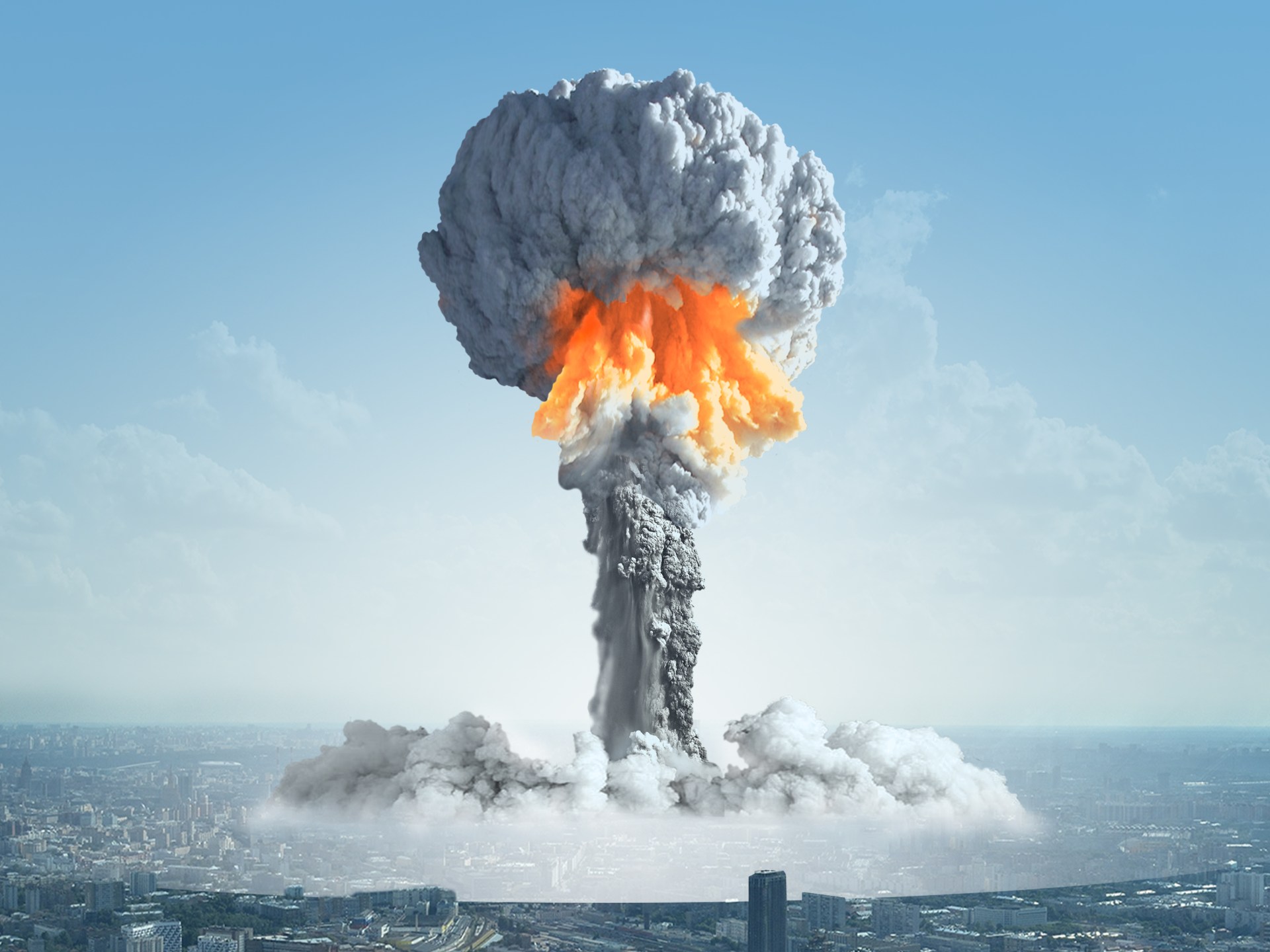With the great escalation in the war scene in Ukraine, and the withdrawal of Russian forces from Kharkiv a few days ago under the strikes of the Ukrainian army, the specter of nuclear war has reappeared, amid growing talk about the possibility of Moscow using tactical nuclear bombs in the war.
The American magazine "Newsweek" said that the growing talk about the possibility of a nuclear development in the Ukrainian war made specialists talk about measures that might help save lives in the event of a nuclear explosion.
The magazine stated that the extent of the damage caused by a nuclear bomb depends on its size and how far a person or building is from the center of the explosion.
The magazine quoted Paul Hazel, professor of collision dynamics at the School of Engineering and Information Technology at the University of New South Wales in Canberra, as saying that a bomb with a destructive power of 15 kilotons is a relatively small tactical bomb, yet generates a fireball with a radius of 100 meters, and causes complete destruction of up to to 1.6 kilometers around the center of the collision.
As for the more powerful and modern bombs, Hazel told the magazine that they make entire cities an impact after an eye.
Despite the difficulty of dealing with a deadly nuclear explosion, survival is possible if some measures are taken that may save the lives of some people in places relatively far from the vicinity of the explosion.
According to the magazine, Hazel urges resorting to a concrete building or basement before the explosion occurs, while avoiding glass buildings that would be deadly, as well as avoiding wooden buildings and cars.
The magazine quoted the US government website "Ready.gov", calling on people to take cover behind anything that might provide protection, while lying on the face and avoiding touching the eyes, nose and mouth as much as possible.
And the competent American health centers advise entering a building as soon as possible after the explosion, and heading to the basement of the building, while staying away from the walls and ceilings.
It is also best to remove layers of outer clothing to avoid carrying radioactive materials that may have lodged in outer clothing into the building.
She also recommends working to provide supplies, especially water, which must be packed in glass containers, as well as the rest of the liquids.
In order to avoid being affected by radioactive dust, experts advise to stay indoors with tightly closed windows and doors for at least 24 hours until the effect of radioactive materials weakens, and the longer you stay indoors, the better.

